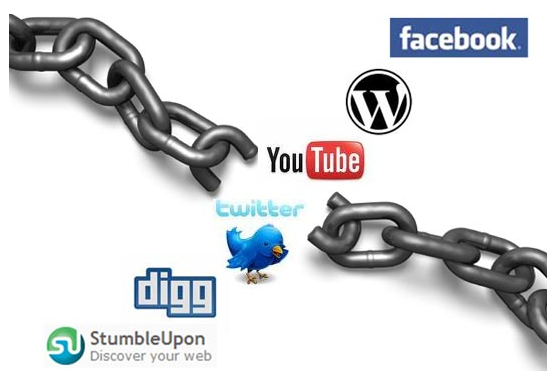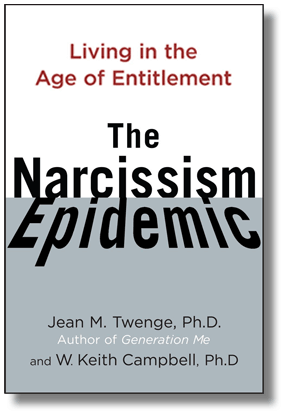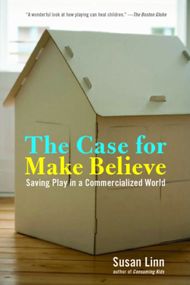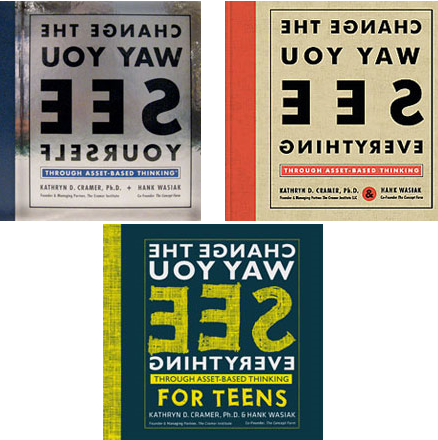 Jan. 15, 2009 Thought I’d wrap up Part Three in this series on digital addiction vs. agency (part one and part two here) with some humorous insights from the medical community that poke fun at some very REAL research dilemmas.
Jan. 15, 2009 Thought I’d wrap up Part Three in this series on digital addiction vs. agency (part one and part two here) with some humorous insights from the medical community that poke fun at some very REAL research dilemmas.
Clearly there are quirky flaws in how the entire DSM process takes shape (DSM V= Diagnostic & Statistical Manual of Mental Disorders aka the big book/manual for shrink think ) prompting valid headlines like, “How many shrinks does it take to change a diagnosis?” (see Mind Hacks’ article here and the pithy ‘rowing backwards into the future’ critique here) Is it possible to regain control of your social media habits without self-diagnosing addiction? (fabulous tips on Search Engine Journal)
Are we even questioning researchers, pundits, and doctors themselves anymore or are we being led like ‘sheeple?’ What does this have to do with kids, media and marketing? Plenty.
For starters, every time any youth psychologist expert with mega-research clout sneezes, it virally takes hold via media pundits and sensationalism to impact parenting decisions, educators, and youth.
Mainstream media often fails to report the details, such as the fact that there’s been infighting among the psychiatric medical community on new diagnoses’ of digital addictions, etc. (just take a look at Science Blog’s pithy headlines on worthy of some late night talk show comedy banter at the very least…)
I’m not discounting the APA (American Psychological Association) work on addictions AT ALL…nor even the premise that there are said to be corollaries between youth anxieties/stresses and/or ADHD depression being linked to internet addiction…again, I AM NOT A DOCTOR.
But as a media analyst (for lack of a better moniker) I DO empirically know what bumps up against the pop culture/media zeitgeist with a trickle down impact on kids’ mental health; after all, I work with them a lot.
On one hand, new research that makes waves in the press can create much needed activism, waking up people from complacency to get into gear and pay attention…on the other hand, sometimes it can create a tsunami of misinformation, knee-jerk alarm and moral panic.
And sometimes (yes, I realize I’m out of ‘hands’) it’s so OBVIOUS it should NOT need a shrink or an APA task force to quantify at ALL…For example, many parents can use their daily life as a show and tell of how early sexualization is taking its toll on kids. (here’s all 72pp of the APA study and here’s my short version on the harm to kids’ mental health and happiness when cash registers go ‘ka-ching’ and kids’ psyches go ‘ka-boom.’
All the more reason to continue to hold the middle ground and try to see both ends of the spectrum with fairness, transparency, and yep, circumspect guardedness against sweeping generalizations. In short, the more we soak in data like a sponge, the more we need to wring it out via media literacy…that way we squeeze the ‘keepable nuggets.’
 Example? This past week’s AP article about Jean Trenge’s newly released study on youth having “more mental health issues today than previous generations” stoked a HUGE fire among some colleagues of mine that were eager to forward it to me.
Example? This past week’s AP article about Jean Trenge’s newly released study on youth having “more mental health issues today than previous generations” stoked a HUGE fire among some colleagues of mine that were eager to forward it to me.
They’d swallowed the supposition whole in “told you so” smugness. Danger, Will Robinson! (ok, turn on the generational wayback machine for that iconic reference)
While some pals pressed “send” to forward in rapidfire “you’ve GOT to see this” data-sharing mode, it automatically triggered my own twitchy alert to warily ‘consider the source.’
I read ALL data as ‘subjective’ from the onset. (fyi, for the next round of media-induced research ephiphanies or moral panic peeps) Why? Because:
EVERY piece of research needs filtered through the funnel of MEDIA literacy and youth advocacy analysis...
In addition to sampling, methodology, demographics and such, ALL research should be received with a keen eye toward bias, prior point of view, vested interests, funding, expertise, speaker and author platforms and so on.
In this case, I recognize researcher Dr. Jean M. Trenge as an author, speaker, and PhD who speaks nationwide on narcissism and is acclaimed for her focus on youth as GenerationMe —She’s earned quite a bit of a media time sharing her book/website appearances and so on…Does that make the data invalid?
No, but it sure does add context.
You’d no doubt get a very different set of data points from esteemed researchers like Don Tapscott of Growing Up Digital or Hank Wasiak’s focus on youth empowerment via Asset Based Thinking. (as I wrote here about his books, he’s calling teens the “Next Great Generation”—That’s his book series below with Dr. Kathryn Cramer; (again: PhD not MD)
Seems THESE are the types of necessary critical thinking skills that give youth the info they need to make decisions without prescribing antidotes to alleviate, medicate, placate, or confiscate media devices in their multiple forms…
It’s what we should be conveying from the get go, ESPECIALLY where medical pathologies and labels like “addiction” can usurp agency fast with lots of hand-wringing and panicked parents in the process.
Did you ask yourself. “Is there an “apples to apples” comparison?” when I mentioned researchers Tapscott & Wasiak?
Do they hold a youth bias in any philosophical direction?
Do they have extensive expertise in the subject matter; programs or books and any vested interests? Are they psychologists or psychiatrists? (answer yes, yes, yes, no in that order!)
Again, does this mean their research is any more or less valid than Dr. Trenge? No, it simply gives us context.
The brain is the ultimate knowledge filter, the devices are just distribution channels. How can we better inoculate youth with ‘question authority’ cues from the get go. (parents may be face-squinching about now; I’m talking about media literacy here!)
I Googled versions of the same research to find a variety of headlines that skewed the same exact AP blurb simply by adding or subtracting descriptors, such as “U.S.” or adding the word “serious”—
This becomes editorializing and generalizing and as I’ve mentioned before, a classic spin on one of my media literacy must-reads is How to Lie With Statistics…If adults aren’t catching the spin, how can we expect children to?
Then there’s the whole denial that any of us are influenced by media in the first place. That’s always rich.
I’ve watched this take shape a lot on the behavioral front with the sheer volume of media/marketing messages defining kids before they can even define themselves. (both decibel level and quantity)
I get peer groups that blend together so much in appearance they might as well be wearing uniforms, yet they INSIST they’re not remotely influenced by media and marketing…
Many have written that this is a whipsmart but cynical generation of ultra-media savvy critics, able to leverage personal agency for themselves at ever-younger ages (the “KGOY” effect)…But again, at what age and stage? How much free agency do YOUNG KIDS really have?
Agency is (and needs to be) with us all…but it IS at risk of being drowned out by the steady drone of 24/7 behavioral cues creating a loud cacophony of ‘shoulds’ that ultimately turn kids away from their authentic core and toward being media/marketing sheeple at ever younger ages.
Sure, agency exists, it’s just getting pummeled by proliferation landing on impressionable kids in tender years. This disturbs me for a variety of reasons…It’s where youth get mowed down by the acceleration of childhood, objectification of both genders, and early sexualization of kids at increasingly younger ages.
Without agency, (perceived or acted upon) the noise to signal ratio of media clutter turns independent thought and free-thinking minds into a pass-through filter rather than a creative vortex…
Which circles back to media and marketing:
Who is accountable for what’s being put out there, and who is responsible for perpetuating it?
How many studies and shrinks does it take to apply plain ol’ common sense to the ‘garbage in, garbage out’ theory of pop culture content?
Do we need to quantify how negative vs. positive media messages are landing on youth, impacting physical and mental health?
How do we teach critical thinking skills to ADULTS much less YOUTH when it comes to noshing media nuggets in short form gulps rather than chewing slowly and taking time not to swallow anything whole?
I’m not a medico, but some of this boils down to a requisite forehead banging ‘duh!’
Just sayin.’ For me, the whole “medicalization” of media via diagnosis (DSM-book addictions creating a victim vs. victor parable with regard to free agency and of course research sans deconstruction) is part of the reason we’re muddling in this societal blame-game of media-morality finger-pointing citing everything from parenting styles to familial causal links…
 I suppose I should interview one of my “she-roes” Dr. Susan Linn (interview on screen time here), about Trenge’s latest research, since she’s renowned for putting children’s mental and physical well-being at the forefront of public health.
I suppose I should interview one of my “she-roes” Dr. Susan Linn (interview on screen time here), about Trenge’s latest research, since she’s renowned for putting children’s mental and physical well-being at the forefront of public health.
She was even honored with the Presidential Citation by the APA nationally for her work at Harvard, CCFC, and Judge Baker Children’s Center shining the spotlight on the media/marketing impact of commercialization on kids.
True, we agree to disagree periodically, but I’m a strong supporter of her over-arching ‘Case for make believe…” I just tend to be in the blended camp of online/offline moderation of everything…so tend to take an ‘anything to excess’ cantilever approach to the center. (which ultimately explains my core issues with the CCFC name, even!)
 I also find her amazing child development work pertaining to the value of unstructured play insightful (and in fact am interviewing Dr. Stuart Brown of the Nat’l Institute of Play soon).
I also find her amazing child development work pertaining to the value of unstructured play insightful (and in fact am interviewing Dr. Stuart Brown of the Nat’l Institute of Play soon).
I concur heartily that there’s a strong need for more play in ALL of our lives…so if anyone can give an honest ‘shrink think’ take on this new study she can.
I find her work to be SPOT ON when it comes to saving play in a commercialized world, and how that all lands on consuming kids universally, so she should have a few strident views on the data. (though I already know she’s not a big fan of screen time for more than a jiff, so I’ve factored that bias into the media literacy equation)
By the way, full disclosure…lights, bells and whistles should be going on in your brain right now, conveying my positive feelings towards her work overall…That’s an editorial bias.
Did you sense that? Have I done my job?
Visual Credits: Lead photo from an excellent article by Dana Lookadoo on Getting Control of Your Social Media Life on Search Engine Journal.com









Great post with some excellent advice and observations. Great point about context as it relates to research and observation. Best practices and programs can emerge from many sources. Thanks for being such a fan of asset-based thinking and part of the positive conspiracy of youth advocates.
Hank Wasiak
What fascinates me the most is how all the new ways to feed the desperate need for connection (internet, twitter, etc), decrease the amount of actual human connection. No wonder it’s being seen as an addiction; it’s the classic cycle of needing more and more because the quick high of the electronic connection is fraught with emptiness.
You’re packing quite a punch here! And, again, we’re thinking about similar issues. I’m currently working my way through Gary Small’s “iBrain” before tackling Born Digital. I figured these would be enough to gain a better understanding of both sides of the not enough/too much digital media argument, but I can see that I’m wading into a deep pool.
.-= Sandra Foyt´s last blog ..Get Published: 7 Reasons to Diversify Your Writing =-.
“Foster Teens, Advocates Address Issues of Aging Out at ‘First-ever’ Youth-led Hearing” Check it at http://alanwking.wordpress.com/2010/01/26/foster-teens-advocates-address-issue-of-aging-out-at-first-ever-youth-led-hearing/
.-= Alan King´s last blog ..Foster Teens, Advocates Address Issue of Aging Out at ‘First-ever’ Youth-led Hearing =-.